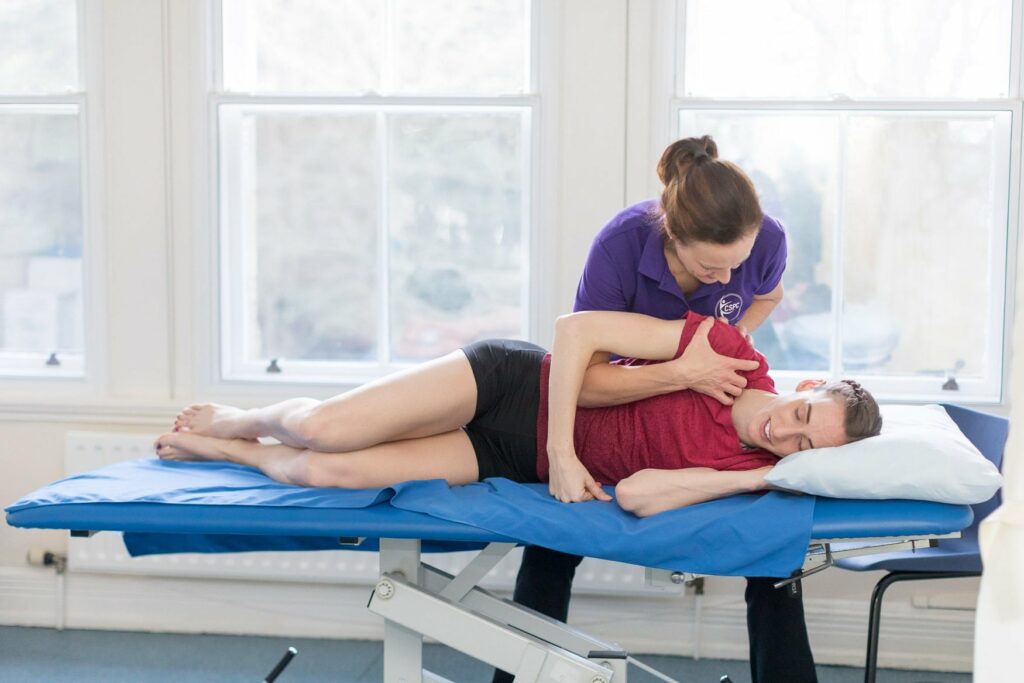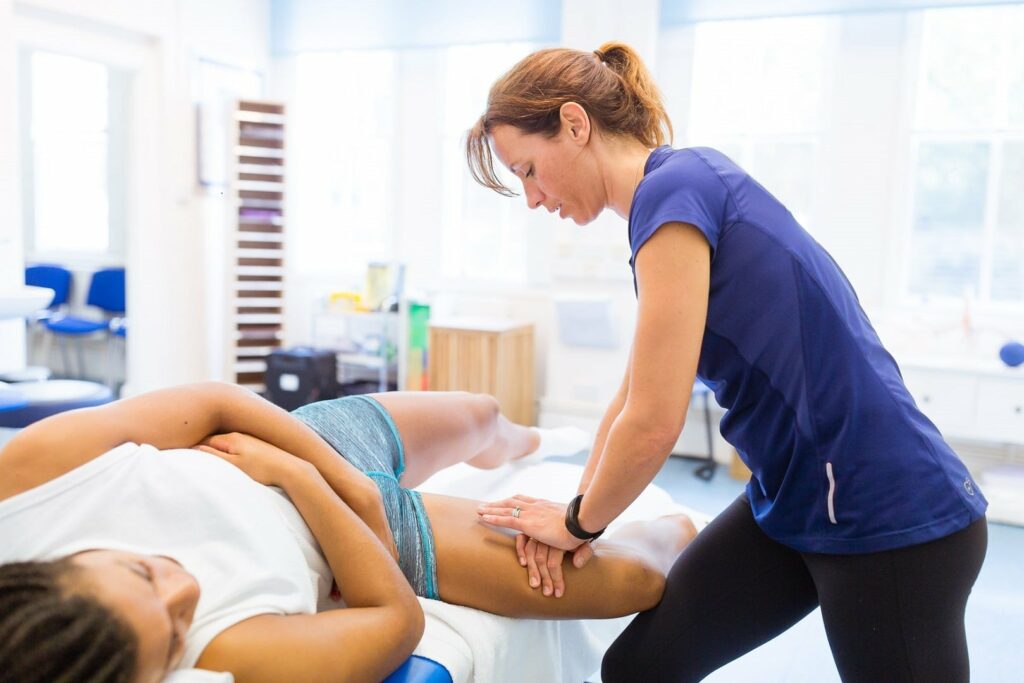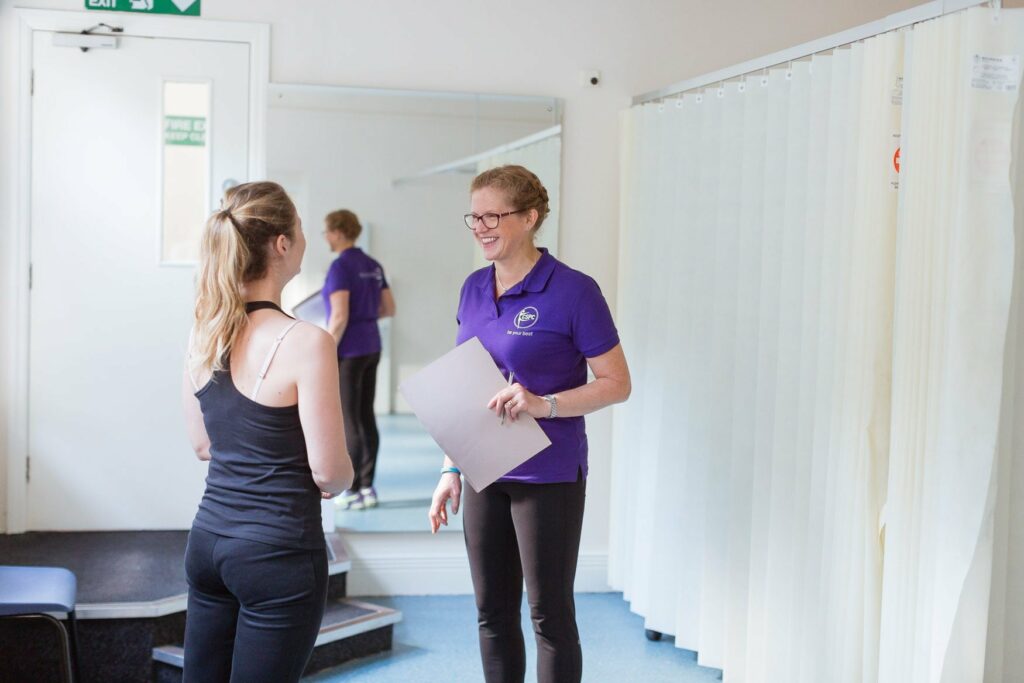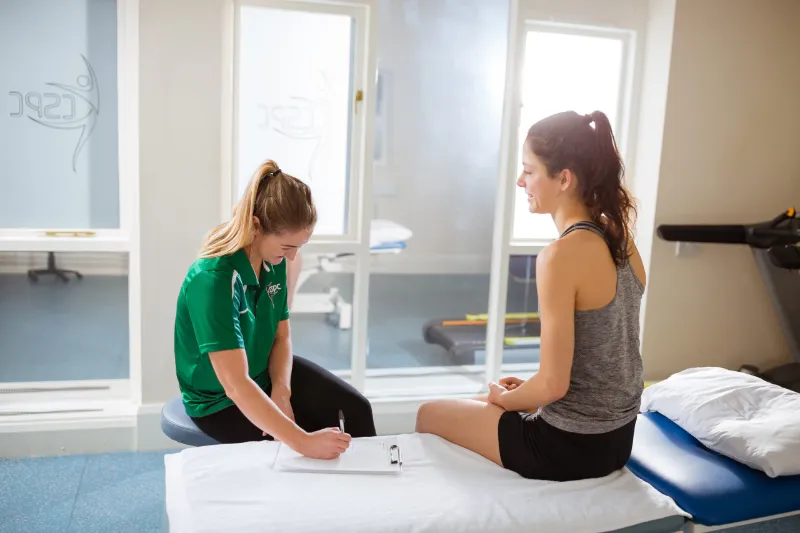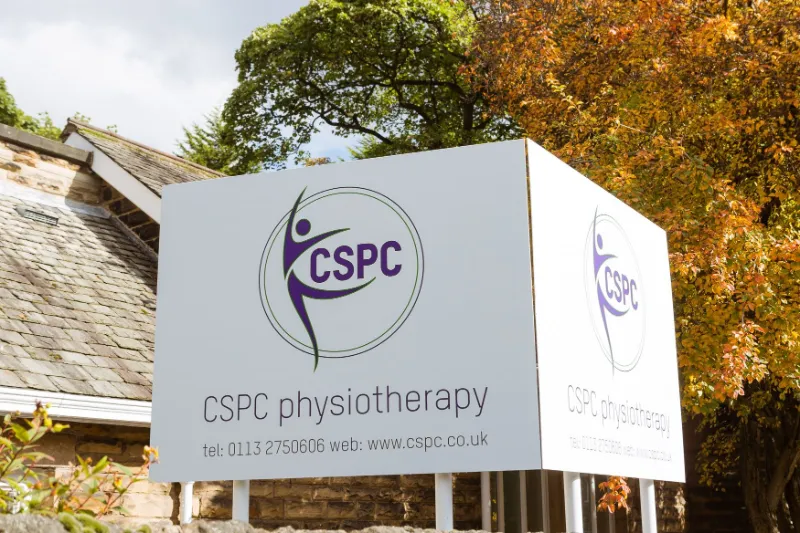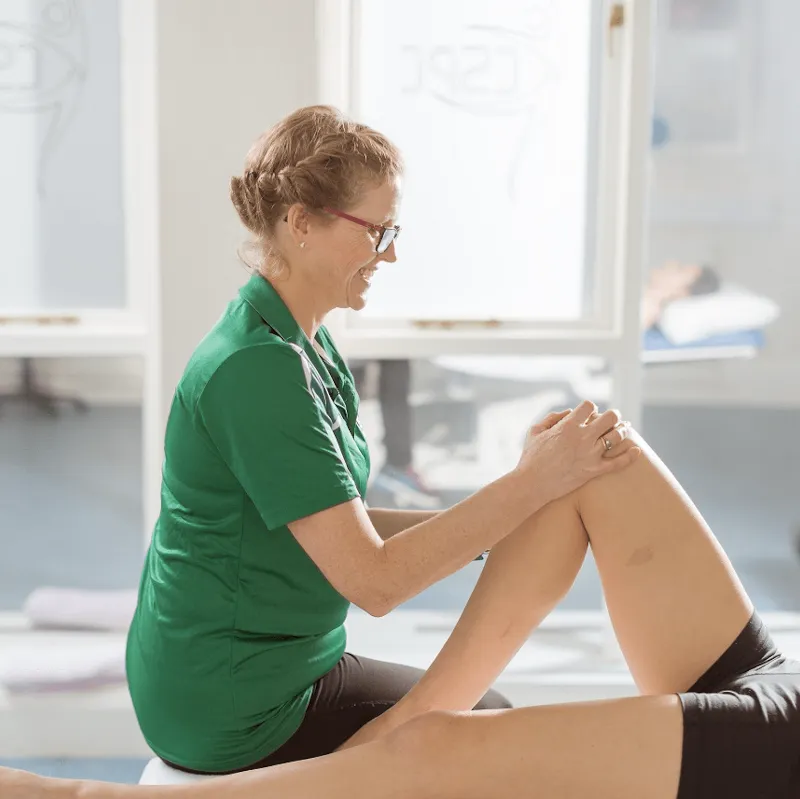Hip pain
Hip pain can be due to a number of factors and it is important to work out why you are getting hip pain, so that the cause can be addressed and help you get back to your activities as soon as possible.
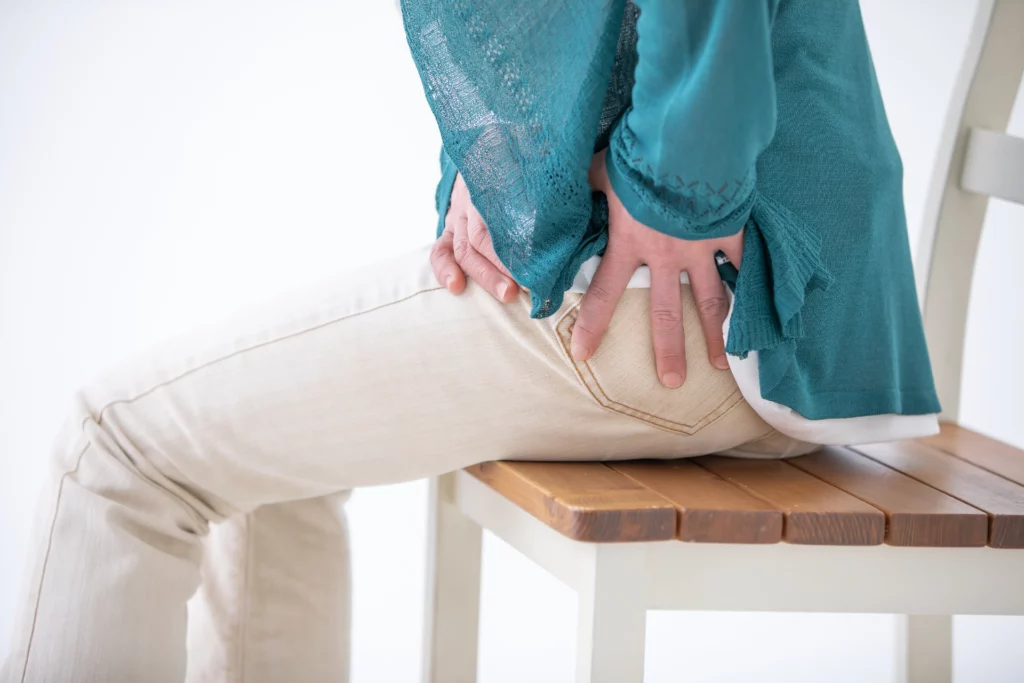
Hips can become sore due to the position of the head of the femur in the acetabular cup (acetabulum) at the hip joint. The ball of the head of the femur should sit centrally within the acetabulum. This may change with tightness or weakness in the muscles around the hip. By working out which muscles need to be stretched or strengthened, it can be possible to alleviate hip pain. Pain in the hip can be neural and referred from the spine, which if identified as a cause, can be addressed.
Bursas, which help to reduce friction around joints are a normal part of anatomy but can become inflamed and sore. This can sometimes be due to tightness in muscles or the way you walk. Identifying the reason for overloading the structures around the hip can help.
Structural issues, such as labral tears and hip impingements (femoroacetabular impingement or FAI) when the femoral head and the acetabular socket hit against each other, can be identified with clinical assessment and may need confirmation on scan or x-ray. Tightness in the muscles around the hip and tightness in the hip capsule can make this worse and can often be addressed to reduce symptoms.
This will need managing by the orthopaedic consultants, but once healed, it is important to see a physiotherapist. A physiotherapist can help manage joint stiffness and muscle strength, and as fractures are generally the result of trauma, there may be a few other areas to be addressed as you recover.
Surgeons can do amazing things with hip replacements if one is needed. It is important to get physiotherapy afterwards to help with scars, joint mobility, muscle strength, and to get you back to all the activities you love. You may not have been moving well before your operation and physiotherapy can help to improve this post operatively.
Other pain in and around the hip joint can be muscular, neural, and biomechanical in origin. Lower back stiffness and poor alignment of the pelvis can also contribute to hip pain. Physiotherapy can help you get the correct diagnosis and management advice to help you have a good recovery.
How do we help you get back on the road to recovery?
Here at CSPC we have a wide range of treatment options to help alleviate your hip pain. The physiotherapist will take a thorough case history and assess all of the areas listed above. Treatment can include
- Manual therapy
- Mobilisation of the hips, pelvis and lower back
- Scar work
- Soft tissue treatment and sports massage work
- Strength and conditioning advice
- Specific and focused home exercise programme
- Shockwave Therapy
- Taping and sports strapping
- Training advice and load monitoring
- Retraining of running technique
- Referral to podiatry if necessary for leg length assessment and biomechanical analysis
- Onward referral for imaging or consultants if required (self-funded or via private medical insurance or a letter to your GP)
To book an appointment, please call reception on 0113 2750606
MEET THE TEAM
Constantly challenging ourselves to be the best
We are dedicated to continually training, challenging and developing ourselves to ensure we are at the leading edge of our profession. The best practices are constantly evolving and Alison leads the internal training at the clinic, working with the team, in small groups and individually ensuring that all staff provide the same high standards of care. All members of CSPC staff also attend regular external training. Many of these courses are run at the clinic with external educators to further expand our knowledge and experience.
GET IN TOUCH
If you have any questions, are ready to book an appointment or are planning your trip to see us then you’ll find all the information you need below.
See why patients
love CSPC Physiotherapy
"Amazing physios! I started coming here when they were located in Leeds Met. Now moved out to a new building by the Village gym/hotel. Every physio I have seen has been nothing short of amazing.....very knowledgeable and always seem to fix the problem!"
Chris Allen
"Rose came highly recommended to me from a sports therapist who was also a high level athlete. She clearly cares about getting her patients back to full health ASAP. She kindly reviewed a list of my injuries prior to booking anything with her so she could appropriately advise on who i should see. From my brief conversation with her i could tell she cared and had extensive knowledge about biomechanics and getting to the root cause of the problem."
Drew Norcup
"I was attended to by Louisa who was great . She was very thorough and methodical in getting to the root of my problem and gave me effective treatment. At the end of my treatment I was given a plan to follow. There was no pressure to book a follow up appointment either.
I would definitely recommend to anyone contemplating going. My only regret is that I did not go earlier."
James Ahmad
"Absolutely the best practice I’ve been to. Extremely experienced and expert physiotherapists. Particularly the folks who’ve worked with British Triathlon and elite athletes. Very happy with the expertise, treatment and longer mire valuable sessions. A very refreshing and reassuring approach to care"
Andrew Bannister
"Wow I have been other physiotherapy the only did basic wok on my shoulder . But janat who did look at my shoulder . She trying to find out what is causing the shoulder pain . She did found out after several exercise . She is amazing what she dose . I am glad I have been recommend to cspc. Let’s hope none one suffer shoulder injury but if you experienced any body pain . Janat is the one . Well done guys finally I can go back to gym "
Sarbast Mohammed

